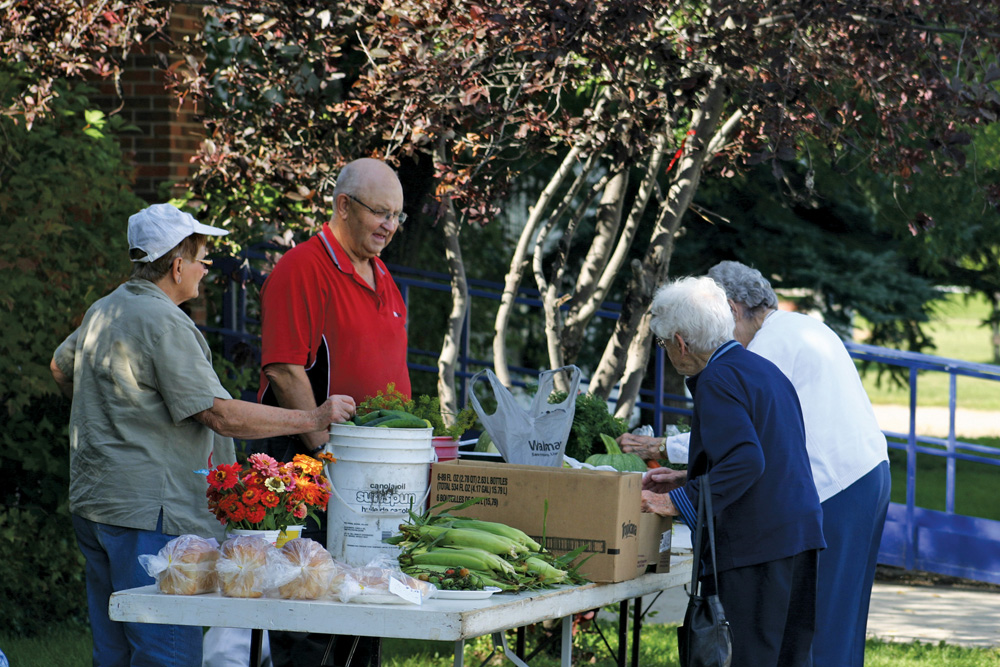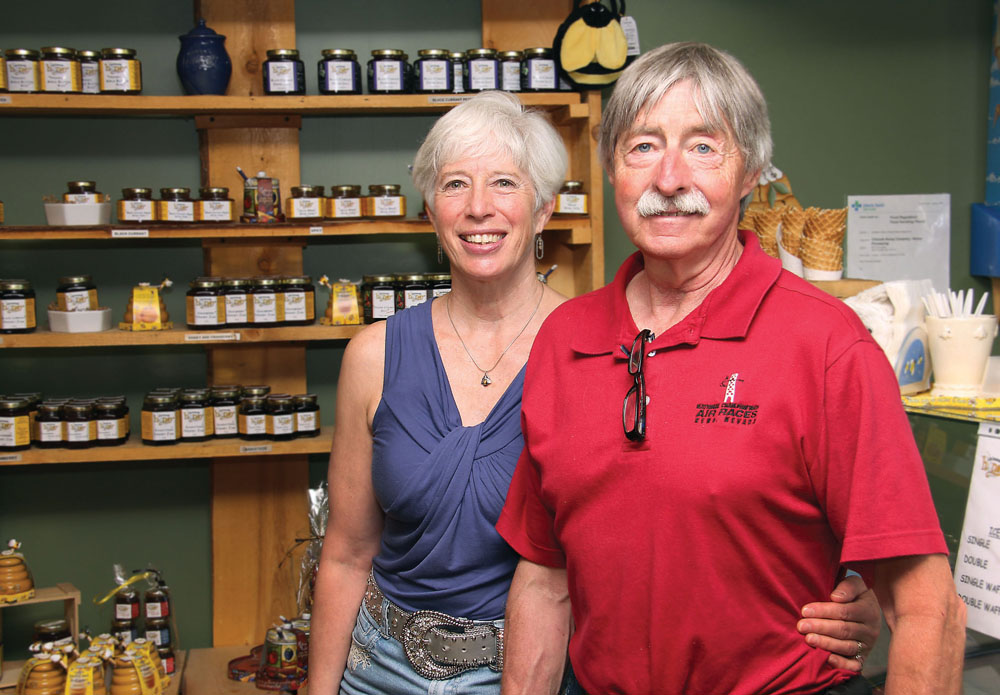Farmers’ market vendors are anxious to make their views known when a review of provincial guidelines governing how farmers’ markets operate gets underway in the new year.
Topping their concerns is a 14-day limit on the number of days markets can operate in any given year.
“The big one is this 14 days (restriction),” said Farmers’ Market Association of Manitoba (FMAM) president Dave Koslowsky in an interview. “Several markets want more” days to operate, he said. “Quite a few want more. I’m not sure how many.”
Read Also

Giant Canada geese have gone wild in Manitoba
Giant Canada geese are seemingly everywhere and can be fine table fare for local hunters, but 70 years ago, they were borderline extinct.
FMAM members also want consistency in how other guidelines, including what sorts of goods can be sold in markets, are applied across all markets, he said.
The Temporary Food Market Guidelines (TFMG), subject to periodic reviews, are what the province deems “reasonable exceptions” to laws under the Public Health Act governing food-handling and establishment of temporary food handling outlets. These allow for the operation of events and sites such as farmers’ markets, and roadside stands.
Fourteen days is the maximum number allowed for these “temporary markets” to operate, as per City of Winnipeg bylaws which have been applied across the entire province.
Too restrictive
That’s way too restrictive, say some vendors who call this the most fundamental issue holding up the growth of the farmers’ markets sector in Manitoba
“The vendors are using the farmers’ market as their primary source of income are definitely feeling a curtailing,” said Brandon vendor and former FMAM member Pat Pollock.
It makes absolutely no sense to restrict the number of days under the guise of protecting public health, Pollock said. “What makes it any more a food safety issue if you’re talking 14 days or 26 days?”
The 14-day rule has been on the books since the 1980s, when a previous farmers’ market cooperative operating in Manitoba agreed to the limit.
Jim Drew, director of the environmental health branch with Manitoba Health, said in an interview last spring that public health inspectors have generally tried to be flexible on this, and occasionally permit extra days when markets have requested more. “Generally, there’s been considerable flexibility,” he said.
Twice a week
Interim findings of an economic impact study done for FMAM, which also looked at capacity among vendors to sell beyond the 14-day regulatory limit, shows most vendors could supply a market an average of once or twice a week for as many as 26 weeks a year.
“There’s a wide range of what can be supplied,” said Blair Hamilton of Dungannon Consulting Service, which prepared that report. Many vendors have more than fresh produce to sell, such as meat or baked goods, and could sell well beyond 14 days, he noted.
“My conclusion is that there’s good evidence that not every market, but quite a few markets would have the ability to be open up to 24 to 26 weeks a year, with those kinds of varieties of products,” Hamilton said.
Jeanette Ens, who grows an extensive garden near Douglas and earns the family’s primary income from vending at summer markets, says their business – and others – could expand if they had more days to sell.
The 14-day limit works against people such as Ens’s family who would otherwise set up cold storage systems and extend their fresh produce availability that much longer, she added.
“Right now, because we’re restricted, we don’t plan to grow or diversify what we already do, because where are we going to go with it?” she said.
“Customers say ‘Give us more market days,’” Ens continued. “I don’t think our market would go 52 weeks, but why not allow us to pick and choose the number of days?”
Brent Warner, B. C.-based executive director for the newly established Farmers Markets Canada, said Manitoba’s restrictions are in stark contrast to the direction in which other provinces have long since moved.
He spoke at the FMAM’s annual general meeting here earlier this month.
Other major cities, including Toronto, Calgary and Saskatoon, operate extensive and permanent indoor facilities attracting hundreds of vendors who sell weekly year round. These places are huge draws to these cities’ downtown areas, and have generated millions in economic activity, Warner said.
“So this 14-day thing here that someone dreamt up is just ridiculous,” he said.
FMAM will consult with its member markets in advance of the TFMG review so it brings forward a position that best reflects what its grassroots want, Koslowsky said.

















